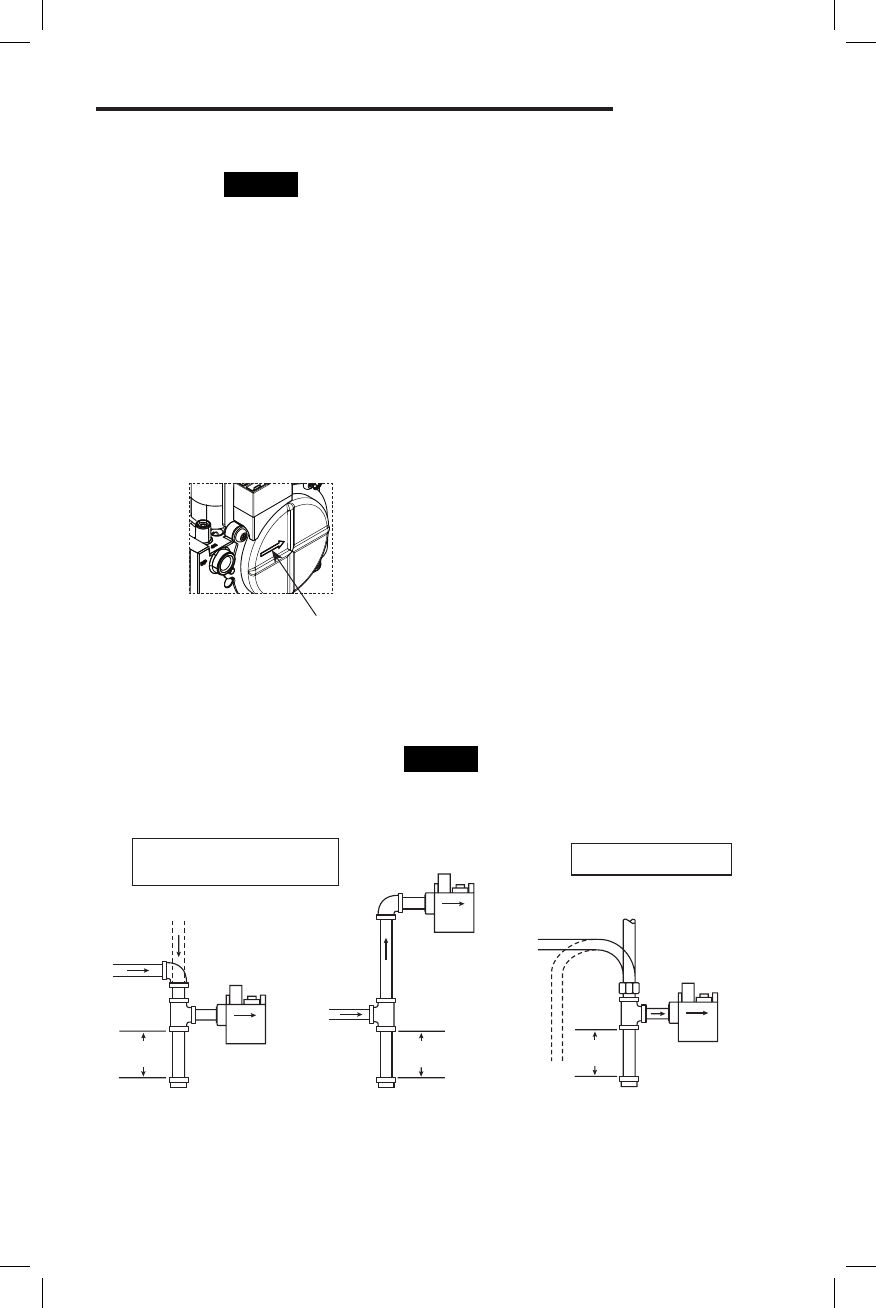Special offers from our partners!

Find Replacement BBQ Parts for 20,308 Models. Repair your BBQ today.

3
1. Turn o electrical power to the system at the
fuse box or circuit breaker. Also turn o the
main gas supply.
2. If replacing an existing valve, disconnect all
plumbing and electrical connections from the
old control.
3. The control may be installed in any position.
The arrow on the bottom plate indicates the
direction of inlet gas ow.
4. You should use new pipe that is properly
chamfered, reamed, and free of burrs and
chips. If you are using old pipe, be sure it is
clean and free of rust, scale, burrs, chips, and
old pipe joint compound.
5. Apply pipe joint compound (pipe dope) that
is approved for all gases, only to the male
threads of the pipe joints. DO NOT apply
compound to the rst two threads (see gure
2 for typical piping connections).
6. If you are using a vise or open-end wrench to
hold the valve while installing piping, do not
tighten excessively, as this may damage the
valve. (Torque: 375 in-lb maximum.) Do not
cross-thread during installation as this may
damage the valve.
7. See SYSTEM WIRING when making electrical
connections. After all gas and electrical con-
nections are completed, turn gas on and check
for gas leaks with leak detection solution or
soap suds. Bubbles forming indicate a leak.
SHUT OFF GAS AND FIX ALL
LEAKS IMMEDIATELY.
LP GAS CONVERSION
For LP gas conversion, use the LP conversion kit
supplied with this control. Refer to the instruc-
tions packed with LP conversion kit.
Fig. 2 – Typical Gas Valve Piping
Piped Gas
Supply
Piped Gas
Supply
Tubing Gas
Supply
NOTE: ALWAYS INCLUDE A
DRIP LEG IN PIPING
Figure 2. Typical gas valve piping
NOTE: A MANUAL SHUTOFF VALVE
MUST BE INSTALLED WITHIN
6 FEET OF THE EQUIPMENT
Horizontal
Drop
3 in.
minimum
Gas Valve
Gas Valve
Riser
3 in.
minimum
Drop
Horizontal
Riser
Gas Valve
3 in.
minimum
INSTALLATION
MAIN PIPING CONNECTIONS
NOTE
Refer to warnings and cautions on page 2 before
attempting installation. All piping must comply
with local codes, ordinances, and/or national
fuel gas codes.
NOTE
All piping must comply with local codes, ordinances,
and/or national fuel gas codes.
Gas Flow
Direction


















